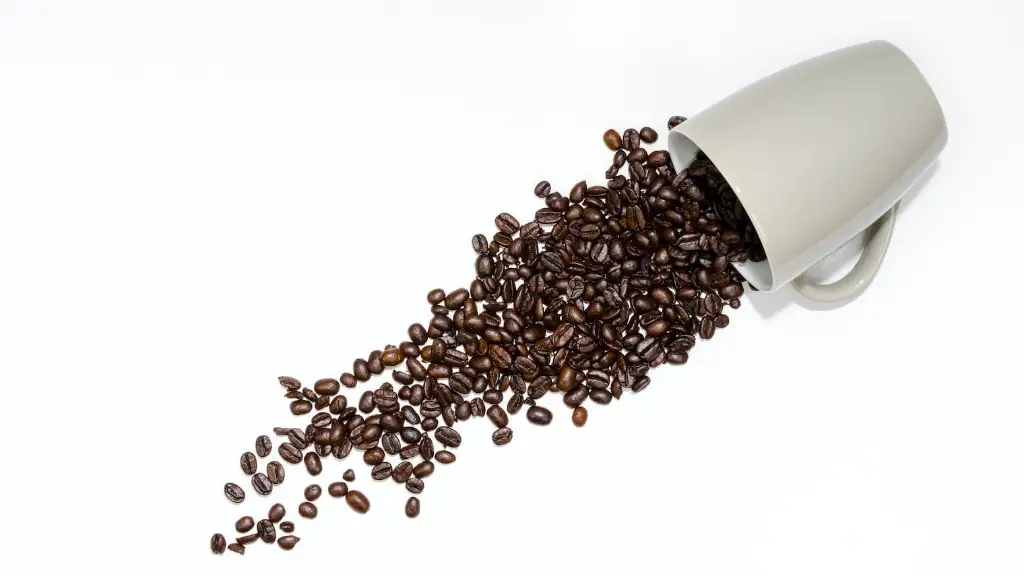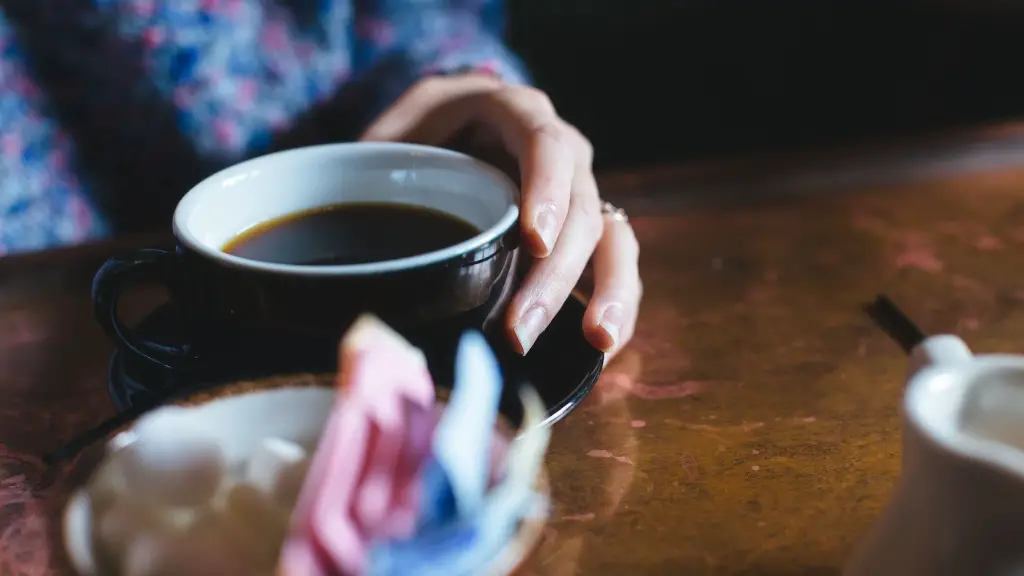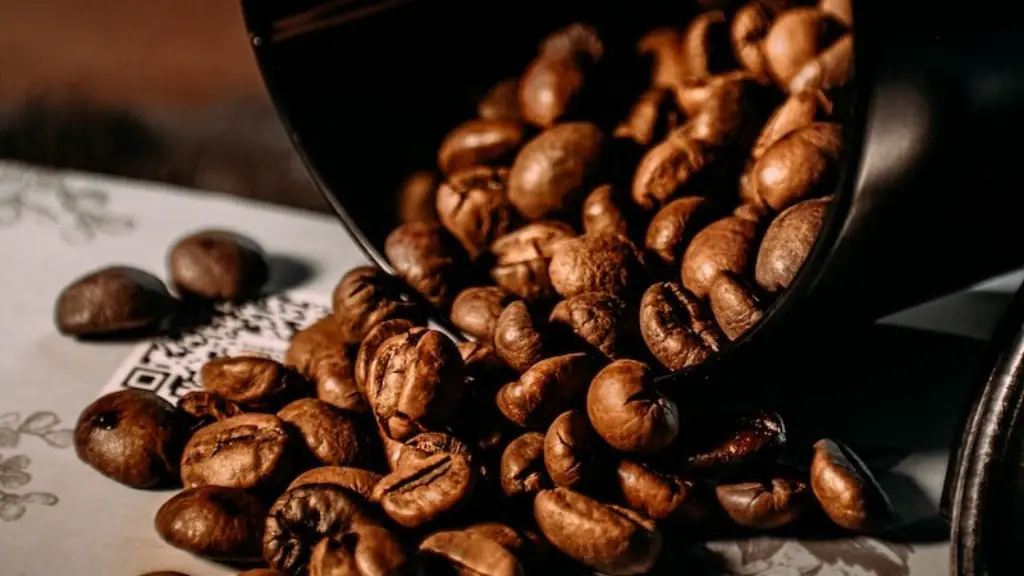Coffee is one of the most popular beverages, enjoyed by people across the globe. Many people like to have a cup of coffee in the morning to wake them up or when they need a boost of energy. But have you ever noticed that you tend to get cramps after your cup of java? If you’re like many other coffee lovers, this cramping may be a frequent occurrence. You may be wondering why this happens.
To understand why cramps happen when drinking coffee, it’s important to look at the body’s physiological reaction to caffeine. Caffeine is a stimulant, which means it can increase alertness, heart rate, and your metabolism levels. It can also cause the body to produce more histamine, a compound that dilates the blood vessels and triggers the body’s immune response. Too much histamine can lead to inflammation, which can lead to cramp-like sensations. Studies have shown that drinking large amounts of caffeine can cause blood vessels to constrict as well, leading to cramps.
It’s also important to consider lifestyle factors when trying to understand why cramps occur after drinking coffee. Many people consume coffee in the morning or after physical activity, both of which can lead to dehydration. Dehydration can cause electrolyte imbalances, which can push muscles to contract more forcefully than usual. This can cause cramping.
In addition to lifestyle factors and caffeine’s effects on the body, there are some medical conditions that can cause cramping after drinking coffee. If you have an underlying medical condition, such as an electrolyte imbalance, diabetes, or kidney disease, your body may not be able to process caffeine properly. This can lead to cramping, so it’s important to talk to your doctor to rule out any medical causes.
Finally, it’s important to note that everyone reacts differently to caffeine. Some people may experience cramps after drinking a single cup of coffee, while others may have no reaction at all. It’s important to pay attention to how your body responds to caffeine and cut back if needed. If you’re prone to cramping after drinking coffee, consider drinking smaller amounts or diluting your coffee with water or non-caffeinated drinks.
What are the recommendations for safe coffee drinking
When it comes to drinking coffee safely, there are some key recommendations to keep in mind. First, remember to stay hydrated throughout the day, as dehydration can make you more prone to cramps. Second, limit your coffee intake to no more than 400 milligrams of caffeine per day, and try not to consume more than one cup of coffee in a single day. Additionally, try to limit your coffee intake to the morning or afternoon, as drinking coffee too close to bedtime can make it harder to fall asleep. Finally, be sure to talk to your doctor if you have any underlying medical conditions that could be causing cramps after drinking coffee.
The effects of coffee on performance
When consumed in moderation, coffee can have positive effects on physical and mental performance. Caffeine can increase alertness and help you stay focused, making it a great choice for a mid-morning or afternoon pick-me-up. Additionally, some studies have shown that caffeine can increase your endurance during physical activity, as well as your reaction time. If you find that drinking coffee helps you feel more energized, try drinking moderate amounts of coffee before physical activity or work.
However, it’s important to keep in mind that too much caffeine can cause feelings of jitteriness, restlessness, and agitation. It can also interfere with your body’s natural sleep-wake cycle, so it’s important to limit your caffeine intake to 3-5 hours before bedtime. Additionally, be aware that your tolerance for caffeine will likely increase over time, so you may have to adjust your intake.
The potential long-term risks when drinking coffee
Although drinking coffee can have short-term benefits, it’s important to recognize the potential long-term risks associated with consuming too much caffeine. Too much caffeine can increase your risk of heartburn and stomach ulcers, as well as high blood pressure and type 2 diabetes. Long-term use of caffeine can also lead to insomnia, anxiety, and other mental health issues. Additionally, too much caffeine can make it harder for your body to absorb certain vitamins and minerals, such as calcium, magnesium, and iron.
It’s also important to keep in mind that some people are more sensitive to caffeine than others. If you experience cramps, headaches, or other unpleasant symptoms after drinking coffee, it’s likely that you have a low tolerance for caffeine and should reduce your intake. Additionally, pregnant women or women who are breastfeeding should avoid drinking coffee due to potential risks to their health and the health of their baby.
Tips on how to reduce the occurrence of cramps when drinking coffee
Although cramps can occur after drinking coffee, there are some strategies that can help reduce your risk of experiencing cramps after drinking coffee. First, make sure you stay hydrated by drinking plenty of water throughout the day. The best way to do this is to drink water before, during, and after your cup of coffee. Additionally, limit your caffeine intake to no more than 400 milligrams per day, and try not to consume more than one cup of coffee in a single day. Lastly, pay attention to how your body responds to caffeine; if you experience cramps after drinking coffee, try drinking fewer cups of coffee or diluting your coffee with water or other non-caffeinated drinks.
Conclusion
Drinking coffee can lead to cramps, but this doesn’t mean that you have to give it up! By understanding the body’s response to caffeine and recognizing potential lifestyle and medical factors, you can learn why cramps happen when drinking coffee and make adjustments to your consumption that can help keep your cramps at bay. Additionally, by limiting your caffeine intake, drinking plenty of water, and paying attention to how your body responds to caffeine, you can enjoy the flavor and benefits of coffee without the cramps.



